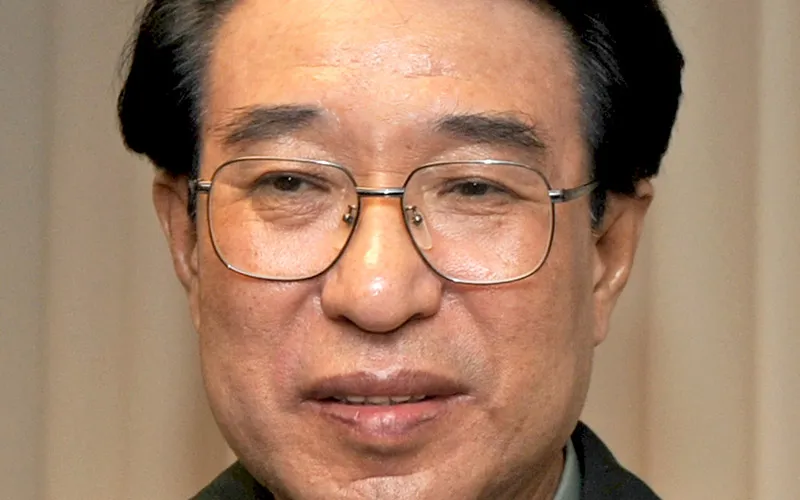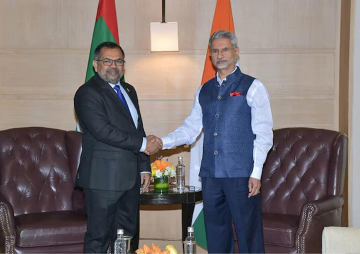Qi Dacai, the Vice President and Director at China Southern Power Grid Co, Ltd was arrested for suspected bribery and is the latest official to fall victim to the Chinese Government's all-out battle against graft. He is one of the "tigers ", a term used for higher up officials to be investigated and arrested on corruption charges. Many "flies" or lower level officials were also netted in this campaign. According to the Central Commission for Discipline and Inspection, the Party's watchdog, since the announcement of the anti-corruption campaign a year ago, 182,000 officials were punished for disciplinary violations in 2013. As of 2015, the campaign has caught 99 high-ranking officials, including high ranking military officers, senior executives of state-owned companies and four national leaders.
An unrivalled anti-corruption campaign began after the conclusion of the 18th National Congress of the Communist Party of China (CCP) held in Beijing in November 2012.Xi Jinping replaced Hu Jintao as the General Secretary of the Communist Party of China and the Congress elected the 18th Central Committee of the CCP. At his speech as the Party General Secretary, Xi highlighted the importance of cracking down on graft and corruption and warned that failing to tackle corruption could threaten the survival of the Party.He made a vow to "unswervingly fight against corruption" during a plenary meeting of the CPC's Central Commission for Discipline Inspection (CCDI) in 2013. He also stressed in his speech to fight corruption in a comprehensive way, address both its symptoms and root cause and combine punishment with prevention, with the emphasis on prevention .
The high rhetoric was accompanied by concrete set of rules and The Eight Provisions were laid down on how to improve the Party's general work methods. It imposed restrictions on official behaviour and required officials to reconnect with the masses, banned the use of luxury cars, eliminated lavish gifts, and reduced pomp, banquets, ceremony, bureaucratic visits, and meetings. These rules were further integrated into a year-long mass-line education campaign after Xi Jinping became China's new President. Change in the Party work style were emphasised and corruption was considered antithetical to proper functioning of the Party with discipline. In this context he called for "thorough clean up" of four undesirable work styles -formalism, beaucratism, hedonism and extravagancethus justifying the campaign on targeting "tigers" and "flies " and fight against corruption .
Old wine in new bottle?
China stands at the 100th rank, according to the 2014 annual Transparency International Corruption Perception Index Survey of 175 countries, tied in with countries like Algeria and Suriname. Anti-graft campaigns have been a tradition for China's leaders since the past in order to eliminate their enemies within the party and build friends within. In 1951, Mao Zedong launched the "Three-anti/Five-anti campaigns" which sought to contain oppositions to Communist Party. In 1998, Jiang Zemin launched the "Three Stresses Party Rectification" campaign which saw several senior officers brought down on corruption charges. In 2004, Hu Jintao spoke about bringing about an anti-graft campaign to keep the Party strong by eliminating corruption.
Xi Jinping in seen to be taking forward the battle on corruption and there have been discussions about this campaign also geared towards strengthening his own position in the Party while purging enemies and cultivating a circle of loyalists. While many debates have come up with regards to the reasons for such a campaign, one noticeable difference is the unprecedented scale with which it has been carried out. The campaign has become an important project for Xi Jinping and along with his new signature campaign on Four Comprehensives has become part of the party's guiding philosophy. The Four Comprehensives which were unveiled in February 2015 are focused on comprehensively building a moderately prosperous society, deepening economic reforms, governing according to the law, and applying strictness in governing the Party. These markers place an important platform to firm his position on the anticorruption movement.
Theory-building in the anti-corruption movement
Many theories are being built to understand the nature of the anti-corruption campaign currently underway in China
• Political purge campaign: While anti-corruption campaigns have long been used to conceal political struggles within the Party, many of the senior officials probed in the course of the current campaign have either direct or indirect ties to retired Party elders. This has been construed to be a political purge intended at removing the members under influence of retired Party leaders. In this bargain the campaign has sought to systematically eliminate the Zhou Yongkang led Sichuan clique. The Bo Xilai incident triggered rumours of a coup plot against Xi Jinping involving both Bo Xilai and Zhou Yongkang, a retired public security chief and former Politburo Standing Committee member. Within a month, Bo, once a likely candidate for promotion of the Politburo Standing Committee was dismissed and was subsequently sentenced to life imprisonment for bribery, embezzlement and abuse of power.
Similarly Li Chuncheng, a protege of Zhou and many of the Sichuan leaders with link to Zhou were brought under investigation, including former deputy governor Gou Yongxian, former vice-minister of public security, Li Dongsheng and former chief regulator of state-owned enterprises, Jiang Jiemin. Finally state authorities announced the investigation of Zhou on 29 July 2014 and in June 2015 he was sentenced to life in prison. This announcement broke the unwritten rule that a retired member of Politburo Standing Committee would not be probed.
• Rule of law versus Rule of Party: Observers have noted that the campaign takes place outside the framework of law and is under influence of CCP discipline regulations rather than following due process of law. In a recent paper analysing the anti-corruption campaign, theauthor Samson Yuen contends that only a small portion of high-level officials were transferred to formal prosecution system while majority were often given Party disciplinary punishment . Also officials under probe are mostly detained using the "shuanggui" or "double designations" process which is extra-legal an inner Party detention process where Party members are questioned for a designated duration at a designated place. Such extra-legal processes have led observers to conclude that the campaign addresses only the symptoms and not the systemic causes of the problem.
• Target PLA: While the People's Liberation Army (PLA) has for long been a breeding ground of corruption, it has never come under the ambit of previous anti-corruption crackdowns. General Xu Caihou, a former vice chairman of the Central Military Commission and a trusted ally of Jiang Zemin and Hu Jintao was removed from office. He became the highest-ranking official to have fallen campaign thus signalling the campaign tentacles within the People's Liberation Army too. It also demonstrates that even the powerful military is not immune from the campaign, while critics argue gives Xi Jinping a chance to tighten his grip on the army by instating generals loyal to him.
• Expanding scope of investigation: While targeting the officials in provincial and central Party-State bureaucracy, the reach of the investigation has moved to economic sectors which have been dominated by state-owned enterprises which were immune from previous corruption probes.
• New Media and citizen driven campaign: Thecampaign has been given a heavy media turn and Chinese netizens are becoming aware of Xi Jinping's anti-graft campaign and arein approval of it.The website of CCDI has become a popular way for Chinese netizens to learn about daily investigations and the website has also been receiving support in form of anonymous information about corruption from citizens. The CCDI also encourages citizens to start a "taking pictures of corruption when you see it" campaign, urging Chinese citizens to use their cell phones to take pictures of government officials who indulge in luxury eating and drinking. The website receive more than 24,000 reports in the first month since its opening in 2013.
Need for an anti-corruption campaign?
According to a 2013 survey conducted by the Pew Research Center, 53pc of Chinese said that corrupt officials were a big problem. Corruption in China has become a norm and citizens face corruption and bribery at all levels on a daily basis. One could attribute the permeating corruption to system of "guanxi", a term meaning 'networks' or 'connections'. This system of connections gives rise to a cycle of bribe taking and bribe giving and according to a business official quoted in a CNN article, business in China cannot survive without bribes and for a businessman, guanxi is essential.
Another factor that has also propelled the movement is also the amount of corruption in China along with changing dynamics of market society and economic growth which affects different people differently. This has led to people increasingly resent corruption and the ongoing anti-corruption campaign reflects the concern about rampant corruption permeating all sections of Chinese society. This, the CCP feels could result in endangering the stability of the Party and question its legitimacy.
Many China watchers in the West have tended to take the view that President Xi Jinping's current campaign against corruption is politically motivated and he is using the campaign to eliminate his opponents and consolidate his power. According to Dr.Joseph Fewsmith, the way this campaign is being carried out and his high-handed posture may lead to public discontent and possible political crisis. Some experts however seem optimistic. Beijing Professor Hu Xingdou contends that the campaign is different from earlier similar attempts at wiping out corruption. Cheng Li from the Brookings Institution, dismisses the political elimination argument given and contends that these arguments distract from the positive changes that the anti-corruption campaign and the associated reforms it can bring to Chinese society. He does exercise caution that as a result of his success he must not neglect strengthening institutional reforms and warns that an ad-hoc campaign can reduce corruption in the short term but would not help bring long term legal and political reforms which are critical towards ensuring good governance in China.
In the recently held 24th group study of the 18th Political Bureau of the CPC Central Committee, President Xi emphasised that "there can be no rest or turning back in our anticorruption drive". He has also emphasised that "strict and effective law and regulations" would be required for the anticorruption drive. While the initiative is part of a larger legitimacy struggle for the Party, he needs to bear in mind that this type of arbitrary and high-handed posture could backfire and become a catalyst for political crisis if it continues in the present way. What China needs in the long run is legal system of checks and balances, genuine political reforms, transparency and a real resolve to fight corruption since this current campaign is more about rescuing the Party and restoring public faith than eradicating corruption.
(The writer is a Research Intern at Observer Research Foundation, Delhi)
The views expressed above belong to the author(s). ORF research and analyses now available on Telegram! Click here to access our curated content — blogs, longforms and interviews.




 PREV
PREV

